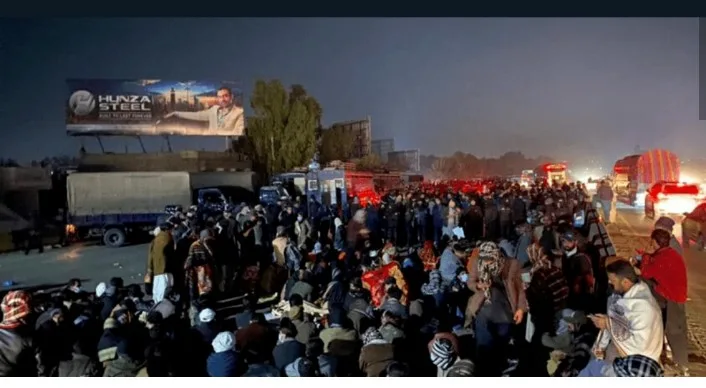Islamabad, In a troubling escalation, Baloch protesters in Islamabad faced a forceful crackdown late Wednesday night, triggering unanimous condemnations from human rights organizations, analysts, and political figures. The Islamabad police detained dozens of Baloch men and women during a demonstration against enforced disappearances and extra-judicial killings, leading to a vehement response and sparking concerns about the state’s handling of dissent.
Videos circulated widely on social media portrayed security officials employing water cannons and tear gas against protesters. Shocking scenes unfolded as Baloch individuals were forcibly arrested, dragged into police vans, and subjected to physical violence with clubs. The police also dismantled camps and loudspeakers set up by demonstrators outside the National Press Club.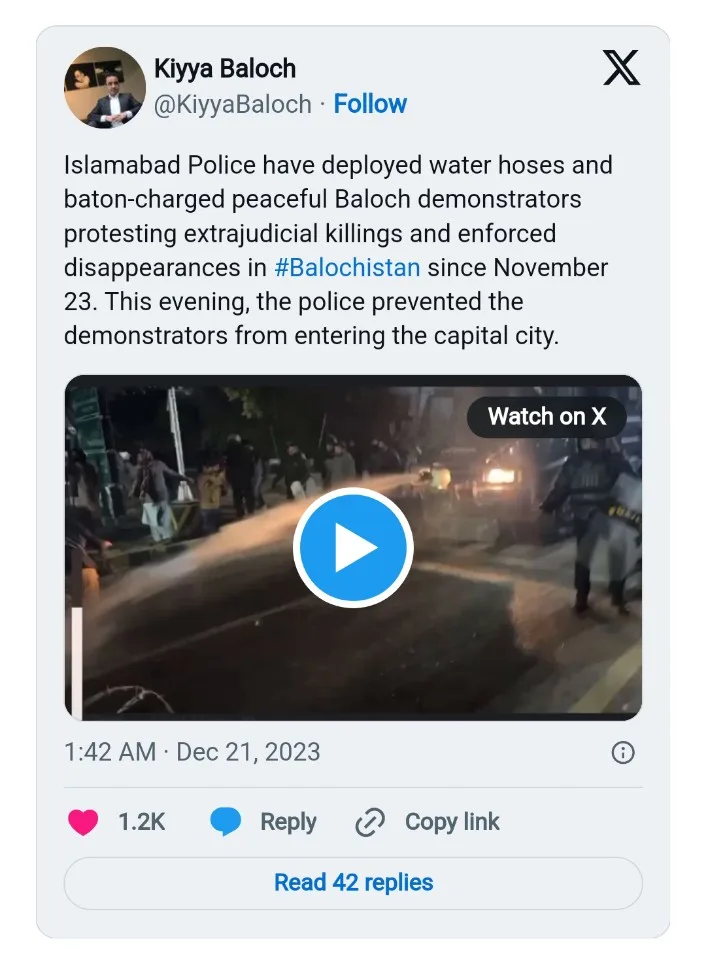
The protest, initiated by Baloch women in a long march that commenced in Turbat on December 6, aimed to draw attention to alleged extra-judicial killings. However, strategic police blockades at entry points and major arteries into the city prevented the protesters from reaching their intended destination, culminating in a night of escalating tensions.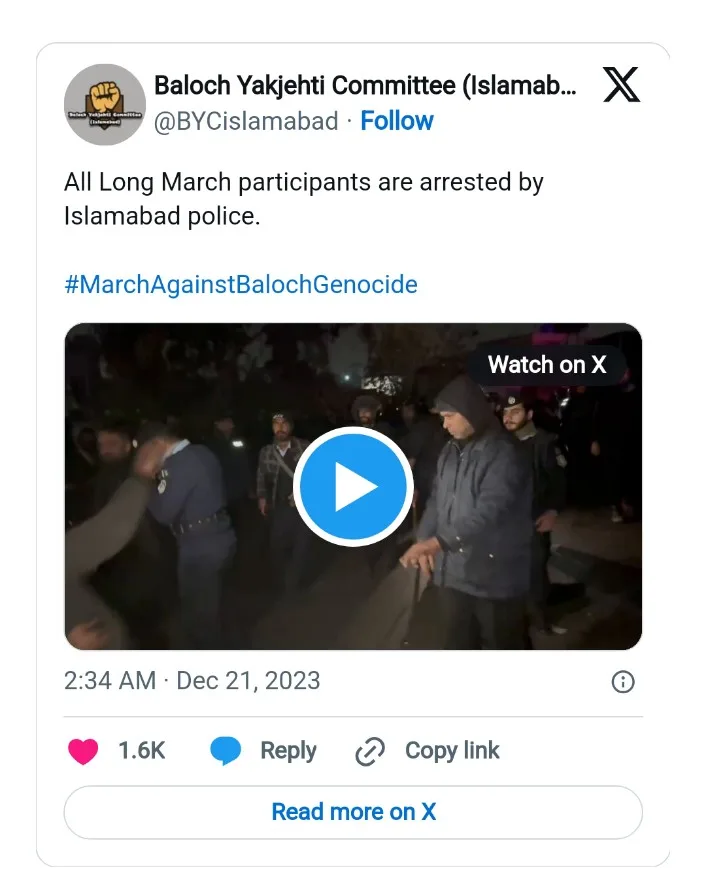
In response to the events, an Islamabad police spokesperson issued a statement claiming that “masked men carrying batons” were among the protesters. The spokesperson justified the use of what was described as non-lethal methods to prevent the entry of protesters into high-security zones, emphasizing the avoidance of excessive force and asserting the necessity to maintain public order.
Human rights organizations swiftly responded to the developments, condemning the “violent police crackdown” on Baloch protesters. The Human Rights Commission of Pakistan (HRCP) strongly criticized the treatment of women, children, and the elderly, stating that the use of force against citizens exercising their constitutional right to peaceful assembly is “inexcusable.” The HRCP demanded the unconditional release of all detained protesters and urged the government to organize a delegation to address their legitimate demands.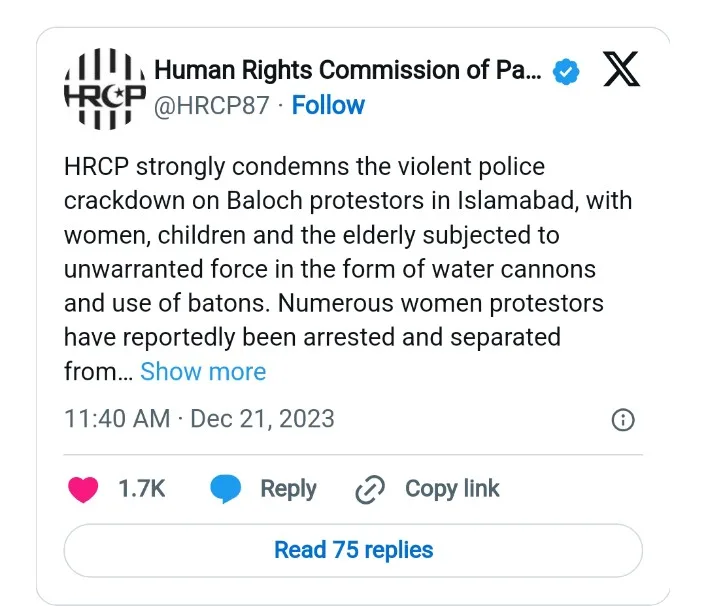
Amnesty International South Asia expressed deep concern over the excessive use of force, emphasizing the violation of protesters’ rights to liberty, security, and peaceful protest. The organization called for the immediate release of the protesters and the dropping of charges against them, highlighting the need for an impartial investigation into extrajudicial killings and enforced disappearances.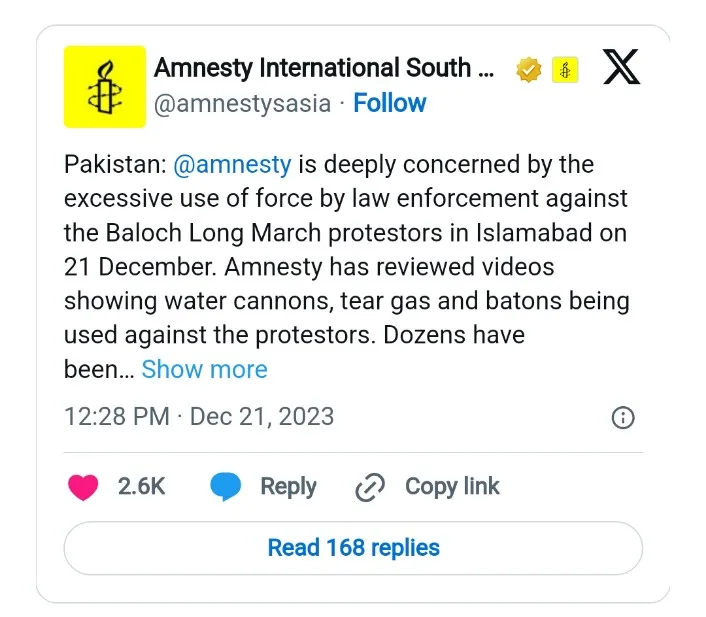
Politically, voices from various parties joined the chorus of condemnation. BNP-M chief Sardar Akhtar Mengal expressed his dismay, characterizing the night’s actions as a clear example of the authorities mishandling the sensitive issue of Balochistan. He vowed to raise his voice against the treatment of Baloch women and children.
The PTI also condemned the arrests, calling on the state to analyze its decisions and make serious efforts to address the concerns of Baloch citizens. Former human rights minister Shireen Mazari labeled the police action as condemnable, asserting that it won’t resolve the real issues of the Baloch people.
Activist Ammar Ali Jan decried the scenes from the night as “another nail in the coffin of our federation.” He emphasized that when peaceful marchers, led by women, are brutalized on the streets of the capital, the state annihilates the possibility of peaceful agitation. The overarching sentiment expressed was the need for a comprehensive resolution to the issues raised by the Baloch protesters, balancing security concerns with respect for fundamental rights and peaceful assembly.
As the aftermath of the crackdown unfolds, there are calls for a thorough examination of the state’s response, ensuring accountability, and addressing the genuine concerns of the Baloch people in a manner that upholds constitutional rights and democratic values.


